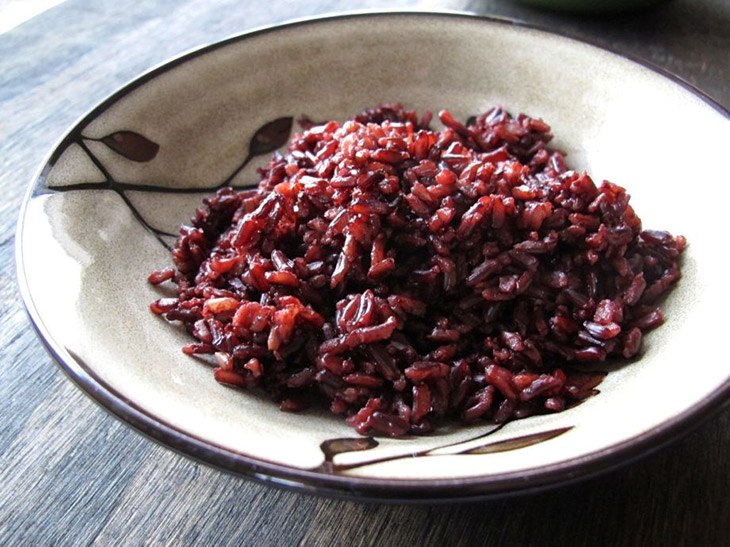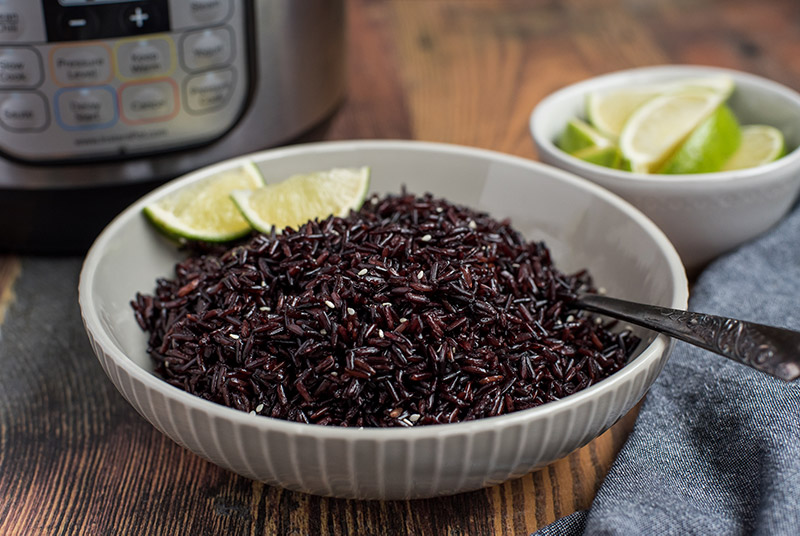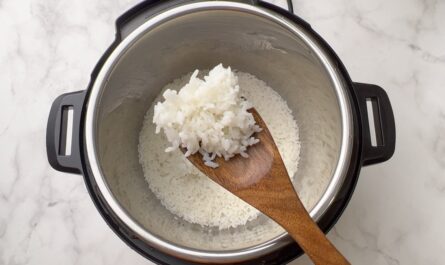For sushi lovers, the question often arises: can black rice be eaten daily? With its unique flavor and impressive health benefits, black rice is gaining popularity among sushi enthusiasts and health-conscious individuals alike. This article delves into the potential of incorporating black rice into a daily diet, shedding light on its nutritional benefits and culinary versatility. So, let’s explore the world of black rice and see how it can become a staple in your daily meals.

Understanding Black Rice
What is Black Rice?
Black rice, also known as ‘forbidden rice’ or ’emperor’s rice,’ is a type of rice that is black in color due to its high anthocyanin content. This pigment not only gives black rice its rich hue but also contributes to its health benefits.
Nutritional Profile of Black Rice
Black rice is a powerhouse of nutrients. It is rich in antioxidants, fiber, and protein, making it an excellent choice for those looking to boost their nutrition. Unlike white rice, it retains its bran, endosperm, and germ, providing more fiber and nutrients.
Health Benefits of Eating Black Rice Daily
Rich in Antioxidants
Black rice is one of the most antioxidant-rich grains, thanks to its anthocyanin content. Antioxidants help protect the body from free radicals, which can cause cellular damage and lead to chronic diseases.
Supports Heart Health
Regular consumption of black rice may benefit heart health. Its high levels of anthocyanins are known to reduce the risk of cardiovascular disease by improving cholesterol levels and reducing inflammation.
Aids in Weight Management
For those looking to manage their weight, black rice can be a great addition to the diet. It is low in calories and high in fiber, which helps in keeping you full for longer periods. You can check a detailed article on black rice for weight loss.
Improves Digestion
The high fiber content in black rice aids digestion by promoting regular bowel movements and preventing constipation. It also supports a healthy gut microbiome.
Culinary Uses of Black Rice in Sushi
Why Use Black Rice in Sushi?
Black rice adds a unique flavor and texture to sushi. Its nutty taste and chewy texture can enhance the overall sushi experience, making it a popular choice among sushi chefs and enthusiasts.
How to Prepare Black Rice for Sushi
Preparing black rice for sushi involves rinsing it thoroughly and cooking it with the right amount of water. It’s essential to let the rice rest before using it to make sushi rolls. For detailed guidance, you can read more about choosing sushi rice every time.
Potential Concerns of Daily Black Rice Consumption
Digestive Issues
While black rice is generally safe, some individuals may experience digestive issues, especially if they are not accustomed to high-fiber diets. It’s crucial to increase fiber intake gradually.
Allergic Reactions
Although rare, some people may be allergic to black rice. It’s advisable to monitor any adverse reactions when introducing black rice into your diet.
Conclusion: Embracing Black Rice in Daily Meals
In conclusion, can black rice be eaten daily? Absolutely! With its rich nutritional profile and numerous health benefits, black rice can be a valuable addition to your daily diet, especially for sushi lovers. Its unique taste and texture make it an excellent choice for creating delightful sushi dishes. However, it’s essential to listen to your body and make dietary changes gradually. For more insights on using black rice in your meals, visit forbidden rice benefits.

FAQs
Is black rice gluten-free?
Yes, black rice is naturally gluten-free, making it a safe option for individuals with celiac disease or gluten sensitivity.
How does black rice compare to white rice?
Black rice is more nutritious than white rice, as it retains its bran and germ, providing more fiber, protein, and antioxidants.
Can I mix black rice with other rice varieties?
Yes, you can mix black rice with other rice varieties to create unique flavors and textures in your dishes.
This article contains affiliate links. We may earn a commission at no extra cost to you.




